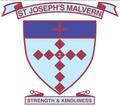Learning Diversity

The Melbourne Archdiocese Catholic Schools [MACS] Learning Diversity team plays a key role in supporting schools to design and implement inclusive approaches to track and monitor the progress of all students in order to:
- accurately identify learning strengths and challenges, and
- consider effective approaches and/or adjustments to support the ongoing and active engagement of every student.
The role of the Learning Diversity Leader within a Catholic school is to work collaboratively with teachers, leaders, children and families (and MACS Learning Partners, as and when required). The aim is to ensure that each child, who has been identified as requiring extra assistance (whether that is due to a diagnosis, or through evaluation of student work or testing and/or observations), are having their needs met through quality differentiated teaching practices and/or intervention. These practices include:
adjustments being made for a student over a period of 10 weeks (cumulative, not consecutive) of school education but must be within the 12 month period prior to the census date. Adjustments may be made due to cognitive, social, sensory or physical needs (categories of disability).
Provision of Personalised Learning Plans (PLPs) for students who are deemed extensive and substantial. These PLPs contain goals for the student that are evaluated over a specific time period. Students who are deemed to be receiving “supplementary” adjustments have their adjustments noted on teacher’s work programs and have a PLP without goals. Quality differentiated teaching (QDTP) does not require a PLP. Evaluation of goals by teachers is critical to ensure that teaching practices are meeting the needs of the student, or whether further adjustments and testing need to be made/undertaken.
Parent Support Group (PSG) meetings with the Learning Diversity Leader, teacher and parents. These occur 4 times per year for students deemed extensive and substantial, and twice a year for students deemed supplementary.
- Connecting with Allied Health professionals, eg, Psychologists, Speech Pathologists, Occupational Therapists, Paediatricians.
Part of the Learning Diversity role is to capture information on students with disability within the school setting. This information (level of adjustment and category of disability) is included annually for the Nationally Consistent Collection of Data on School Students with Disability (NCCD). The level of adjustment provided is critical as it provides funding to the school community to support students in need. All levels of adjustment are based on the extra intervention a student is receiving.
If you are participating in PSG meetings, and you are aware that your child’s teacher is making adjustments for your child, they will be included on the NCCD count for 2025/26.
Nationally Consistent Collection of Data on School Students with Disability (NCCD)
The NCCD is an annual data collection that records the number of students with disability and the level of reasonable educational adjustment provided. All Australian schools are mandated to complete the data count on an annual basis, and this year, the census date falls on Friday, 1 August 2025. Dependent on the level of adjustment provided for each student on the NCCD, the school receives different levels of funding to support the students’ learning and engagements for the following year.
Under the NCCD model, teachers use their professional, informed judgment to determine:
- if students are being provided with a reasonable adjustment to access education because of a disability, consistent with definitions and obligations under the Disability Discrimination Act 1992 (Cth) (DDA) and the Disability Standards for Education 2005 (DSE).
- the level of adjustment provided to each student with disability – extensive, substantial, supplementary, quality differentiated teaching practices (QDTP).
- the broad category of disability – physical, cognitive, sensory, social.
Stacey Farrell
Learning Diversity Leader
